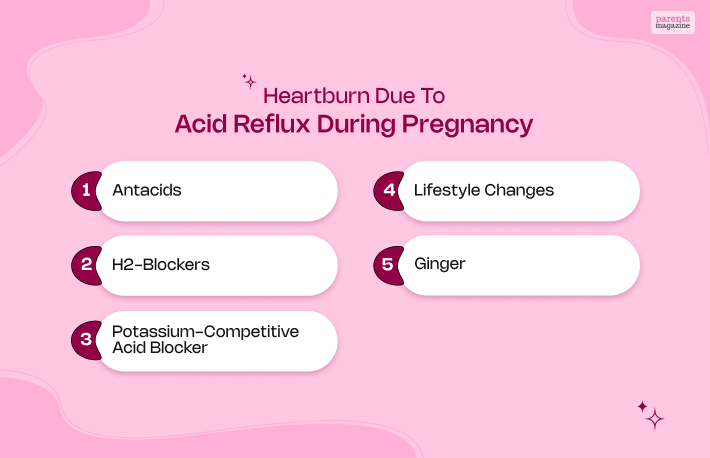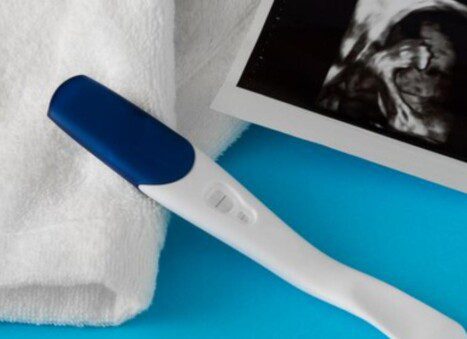
“I Feel a Heartbeat In My Stomach Am I Pregnant”: Find Out The Reasons Behind It
Well, to answer your question, this could mean that you are pregnant. But this is not your baby’s heartbeat. It is because your heartbeat becomes stronger when you conceive. But there could be other possible reasons for feeling a heartbeat inside your stomach.
“I Feel A Heartbeat In My Stomach Am I pregnant?” Other Common Causes Why You Might feel a pulse inside your stomach

The aorta is the primary artery that carries blood to the whole body from the heart. It flows from the heart to the center of the chest and then into the abdomen. So it is normal if every now and then you feel the blood pumping through your veins. But when you feel it in the stomach it could mean various things. Here we have listed those reasons.
Pregnancy
If the question “I feel a heartbeat in my stomach am I pregnant” is crossing your mind, then the answer is “Yes.” Feeling a heartbeat or a pulse inside your stomach could be a sign of pregnancy. You can get your suspicions confirmed with a pregnancy test kit at home.

But the heartbeat you are feeling in the stomach is strangely not your baby’s. It is yours. The sensation is generated from the abdominal aorta, the primary artery carrying blood to the abdomen, legs, and pelvis. During pregnancy, the volume of blood increases by 50%, making the flow of blood more noticeable.
But the volume does not increase much till you reach the second trimester. If you are feeling a pulse inside your stomach, it is hardly a sign of pregnancy. It might happen that you have become extra conscious and are paying more attention to every little sensation, pulse, or movement in the stomach because you are expecting to get pregnant.
Fetal heart rate goes around 120-160 beats in a minute
The fetal heart rate goes around 120-160 beats in a minute. When you are pregnant, the rate decreases and increases all through the day, and that depends on a lot of factors. Fetal rest and movement are among the most important.
Conducting a non-stress test for the fetal heart rate can give you an idea about the average heart rate of the baby. The heart rate is going to increase and decrease when you are doing some exercise and resting, respectively. But if it increases or decreases abnormally without any actual reason, then there must be some underlying issue.
The normal fetal heart rate range is 120 to 160, as I mentioned earlier. Whenever the rate goes beyond this range, it is considered high. If the rate goes above this range, the baby is at high risk of getting congenital disabilities, low flow of blood in the womb, or umbilical cord compression.
If any of these cases take place, there could be a change in the labor position, or there could be a need for an operative delivery. If the heart rate by chance drops below 120, then the baby might need a c-section delivery.
There could be numerous reasons why a fetal heart rate is higher than the normal rate. The most common reason behind fetal tachycardia is SVT, but there are numerous reasons behind this as well. Some of the other reasons are martial fibrillation and atrial flutter.
Maternal heart rate is around 60-100 beats in a minute
It is common for women to think if they are feeling their baby’s heartbeat in their stomach. Yes, it is possible, but it does not mean you are pregnant. The sensation you feel in your belly is the beating of the abdominal aorta, the blood vessel which supplies blood to the umbilical cord and the abdomen.
The heart of the fetus doesn’t fully form until four or five weeks after conception. However, by that time, there are insignificant contractions. After that, the heart beats about 110-150 beats in a minute, and the mother’s heartbeat stays somewhere around 60-100.
It is important to take care of these measurements and contact a healthcare professional if you find any change in the heartbeat. The heart starts beating around the sixth month of pregnancy.
It could be like a flickering heart, but you will get to hear it with the help of an ultrasound. The heart rate keeps increasing through the entire gestation period. Around the sixth or seventh week of pregnancy, the heart beats around 120-160 beats in a minute and then again drops to less than 130 bpm by the term.
Eating
After you have had a meal, it is normal for your body to pump more blood to the abdomen for digesting the food. The extra blood flow can make your pulse more obvious and apparent. This is also another reason why some people get chilly after they have a big meal.

Keep a check on the time when you are feeling it mostly. Notice if you see the pattern coming back after every meal, then it is because your body is jumpstarting the digestive system.
Lying Down
When you are lying down with the knee in the upward direction, the pulse becomes more obvious because of the abdominal aorta. If you do not have a lot of body fat but still observe closely, you might even get to see the movement of your stomach because of the heartbeat.

In case if you want to be sure that this is the exact reason behind your feeling a heartbeat inside your stomach, then just stand up or change the position. If you cannot feel the pulse anymore, then you have your reason.
Dehydration
If you are dehydrated, the heart works a lot more to pump the blood. This could be a reason why you are feeling the pulse so obviously in your abdomen. Have some water; after that, check if you can still feel the beat in your abdomen.

If that happens, then you can be sure that this is because of dehydration. Drink more water; if required, set alarms, use some kind of app, or keep a bottle close to you so that you remember to drink more water.
Abdominal Aortic Aneurysm
It might happen that the strong pulse you are feeling in the stomach is because of an abdominal aneurysm. The condition is quite alarming as the aorta walls get thin and balloon out. This could possibly be the cause behind rupturing and causing a life-threatening condition if it bursts.
Symptoms of an abdominal aortic aneurysm are
- Intense pain at the side of the abdomen or in the abdomen.
- If you feel a pulse near the belly button.
- If you are experiencing severe back pain.
Well, there is no particular reason behind this, but there are certain things which increase the chance of this happening.
- Using tobacco or smoking.
- Any kind of disease related to blood vessels, like atherosclerosis.
- High blood pressure
- Traumatic injuries
- Aortic infections
- Family history
There is also a fact that this affects men times more than it affects women, and it affects people who are mostly over 48 years old.
Heartburn due to Acid Reflux During Pregnancy

As you can see, there’s a high chance for someone to have heartburn due to acid reflux. So, if acid reflux is the reason, then there are specific treatments you can take. In most cases, your doctor may recommend –
Antacids
This is the most common treatment for heartburn and most doctors would recommend antacids. Generally, antacids should be safe to consume during pregnancy. It’s a medicine that works by neutralizing the stomach acid. However, before you consider having antacids on your own, it’s still the best decision to consider your doctor’s advice for this.
H2-Blockers
These are the medicines that neutralize acid in the stomach. In most cases, the H2 blockers are considered safe when you consume them during pregnancy. But it’s best to avoid them in the first trimester.
Potassium-Competitive Acid Blocker
In many cases, these medications are considered the best and the most effective for reducing stomach acid. However, if you are considering having such acid blockers, it’s best to consider your doctor’s advice.
Lifestyle Changes
You can make several lifestyle changes to also get rid of acid reflux. Here are a few things you may consider –
- Eat smaller meals and eat frequently.
- Avoid spicy food, fatty food, and fried food.
- Don’t drink anything between meals or during meals.
- Avoid drinking or eating for three hours before going to bed.
- Elevate the head of your bed or use supportive pillows.
- Stay upright for 2 to 3 hours minimum.
- Wear loose clothing.
Ginger
According to some women, ginger is a really good relief from heartburn during pregnancy. You can have it in the form of tea or with hot water. You can also consider chewing ginger and having it afterward. However, it’s best to chew the ginger first because if you have it in large amounts, it can cause contractions.
When Should You Be Worried?

People often wonder, “I feel a heartbeat in my stomach am I pregnant?” but that is not always the case. You should be worried about feeling a pulse inside your stomach if you face the following symptoms as well:
- If it does not go away even after you stand up.
- You are facing it even though you haven’t had anything for a while.
- You are feeling it even though you are hydrated.
- Along with feeling the pulse, you are getting abdominal pain and lower back pain.
- If the aneurysm is in your family history.
- You have other risk factors as well.
- If you are experiencing anxiety and stress because of this, it is best for you to consult a doctor.
If you are worried and have a family history of an aneurysm, inform your doctor and get yourself tested. It can be tested with a CT scan, MRI, or ultrasound. The treatment has a wide range. It can be as little as a yearly monitoring, or it could require surgery. You might also have to go through some changes in your lifestyle, like quitting smoking or losing some weight.
Wrapping Up!
In most cases, feeling a pulse inside your stomach is not something serious. Many people who have a healthy heart and have no risk for cardiovascular issues can also feel a pulse in their stomach. It is also common if you are wondering, “I feel a heartbeat in my stomach am I pregnant?”
But in some cases, this might be a cause of concern and can be a symptom of an aortic aneurysm. So, if you know that there is a risk of that happening, then be careful, and seek medical help immediately if you know there is a chance of that happening.
RECOMMENDED READING:
Already have an account?
Sign In
Create your account
User added successfully. Log in









